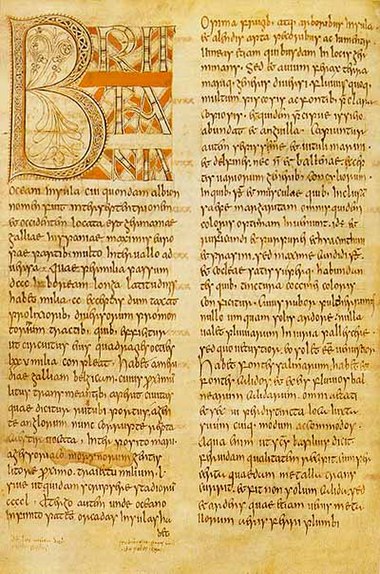Looking through the list of events for November 15, I ran across this one:
655 – Battle of the Winwaed: Penda of Mercia is defeated by Oswiu of Northumbria
Wikipedia, November 15 entry
I had not heard of the battle, or the river Winwæd, or of Penda or Oswiu, although I do have a vague idea of the locations of Mercia and Northumbria in England. I even know some between Rome-and-the-Normans British history, and some of the ramifications of events in this period, so how much can an unknown battle on an unknown river between unknown kings have to do with me, here and now?
Despite a number of other significant events on this day — Pizarro reaches the Incan capital of Cuzco (1533), Sherman begins his march to the sea, burning Atlanta in the American Civil War (1864), William Herschel (discoverer of Uranus) is born (1738), Albertus Magnus dies (1280)…what kept intriguing me was this unknown event.
So I did some research, which is what you do if you are academically inclined or even just curious.
Penda was a pagan king of Anglo-Saxon Mercia who came to power in the early 600s, and made a successful alliance with the Welsh kings, which enabled him to subdue a major part of Northumbria, killing its Anglo-Saxon but Christian king, Oswald, at the battle of Maserfield, near what is now York. He then went further north, invading Bernicia on the east coast of Scotland. This brought him up against Oswiu, Oswald’s brother, at a river called Winwæd in the records…but we are not exactly sure where it was. We have Bede’s short and succinct account of their meeting and Oswiu’s victory.
Penda arrived from the south with troops and warlord allies from East Anglia and Wales, and besieged Oswald at Urbs ludeu, now identified with Jedburgh in Scotland. To prevent the bloodshed of his people, since Penda had vowed to slay all the Bernicians, Oswald offered Penda tribute or ransom, depending on how you read it, and here the historical records are contradictory. One account says Penda rejected the offer, another says he accepted it. In either case, he took his large Mercian force and started south, and Oswiu took his small Scottish force, prayed for victory, and attacked Penda on the road.
Penda’s Welsh allies deserted or withdrew from battle, and Oswiu emerged the victor, with his enemy Penda dead along with the East Anglian King. Mercia was divided, with the north coming under Oswiu’s control, and the south going to Penda’s Christian son.
As a result, the northern part England and the borderlands of Scotland came under the control of Christian kings. Oswiu established churches and monasteries, and presided at the Synod of Whitby in 664, which determined that Northumbria would follow the Roman Christian tradition rather than the Celtic tradition.
The battle I had never heard of between two kings I didn’t know about on a river we can’t now identify determined the course of the Christian church in England.

